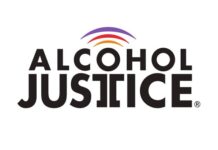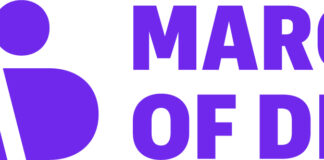New report identifies staggering effects of pandemic & need for greater diversity-inclusive planning in emergency response
HARRISBURG, Pa., Aug. 23, 2022 /PRNewswire-HISPANIC PR WIRE/ — As difficult as the COVID-19 health-care crisis has been on everyone, the impact of this pandemic has been staggering on individuals with disabilities and their families, especially those living in rural areas and those belonging to racial and ethnic minorities, according to a new report from The Arc of Pennsylvania.

Early on during the pandemic, emergency response planning did not consider the unique needs of the disability community, which tends to have worsened health outcomes due to a variety of social and institutional barriers that the pandemic only exacerbated, nor did it account for the challenges people with disabilities face accessing appropriate information or help.
During the yearlong research project that included interviews, surveys, and regional meetings with hundreds of stakeholders, including those with lived experiences of a disability, participants said inequitable access to health care and other social system supports during COVID-19 compounded physical and mental health issues, worsened chronic health conditions, and led to a disintegration in quality of life for entire families.
“If we want to ensure the interests and needs of individuals with disabilities and their families are addressed, then they need to have a seat at the table from the start and they need to be included every step of the way. That didn’t happen here,” said Sherri Landis, Executive Director of The Arc of Pennsylvania, the state’s leading advocacy organization promoting the human rights of individuals with intellectual and developmental disabilities.
The Arc’s report, “COVID-19 Health Care Barriers among People with Disabilities,” is the first part of a multi-year effort funded by the Pennsylvania Department of Health’s Preventative Health and Health Services Block Grant to improve health equity. Having now identified issues that the disability community faced, the workgroups will turn their attention to crafting recommendations for the department to address health disparities. That report is due in mid-2023.
Among the biggest issues that participants reported:
- Barriers to accessible information (braille, plain language, multicultural information, etc.).
- Reduced access to testing, vaccinations, and necessary accommodations.
- Increased risk of severe illness or death due to COVID-19.
The Arc’s research focused on asking participants whether they thought a disability-inclusive approach had been taken to combat COVID-19 and what they thought could be done to ensure a disability-inclusive approach is used to prepare for future emergencies. The responses were catalogued according to social determinants of health, which look at how conditions like where people are born, grow, live, work, play, worship, and age affect someone’s health.
Among some of the specific barriers, participants identified lack of access to professional support staff that put families of children with disabilities in a precarious position, where their ability to work competed with their child’s education, medical, and therapeutic needs. The pandemic exacerbated existing mental health issues — access to support was limited while the need increased — creating social isolation, with many participants reporting individuals being in crisis or attempting suicide.
Safety measures and care needed for the general population competed with critical materials and access that people with disabilities — who often have greater comorbidities — needed for their daily lives. For families of children with complex medical needs, restricted access to gloves, masks, ventilators, and specialized medical equipment created tremendous risk unparalleled by individuals without such complex medical preconditions.
Many individuals with disabilities reported fear and trauma with the loss of a loved one or caretakers, or because of isolation, and said the medical community in general does not know how to serve people with disabilities effectively.
Participants included people with lived experience of a disability, caretakers, and family members of those with a disability, and professionals in support fields. The participants also represented diverse types of disabilities, including physical, intellectual, developmental, and behavioral, as well as emotional, sensory impairment, and complex medical disabilities.
More than 400 individuals from diverse racial, ethnic, and rural populations participated in the study through regional and local interviews, surveys, meetings, and listening tours that served as focus groups over the last year.
The full report can be found at https://thearcpa.org/healthcare-initiatives/.
Logo – https://mma.prnewswire.com/media/1883120/The_Arc_of_Pennsylvania_Logo.jpg
SOURCE The Arc of Pennsylvania







